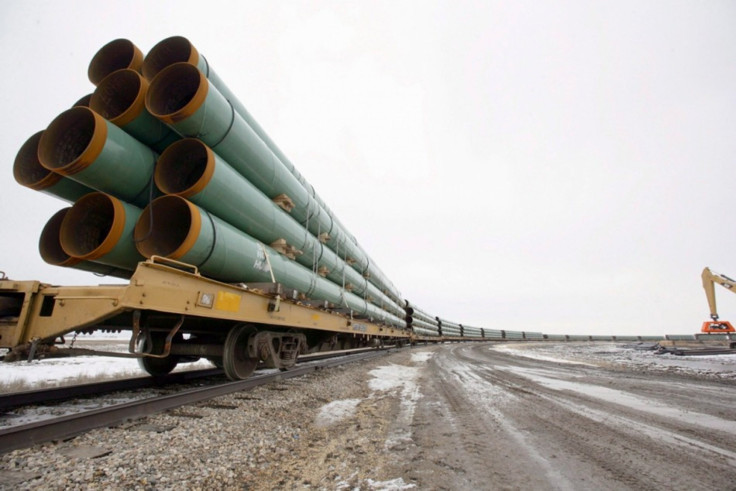Wikileaks Disclosure Reveals Energy Company Strategy Against Anti-Keystone Pipeline Activists

A recent WikiLeaks disclosure reveals a fourfold strategy for countering anti-Keystone XL pipeline activists.
Environmental groups are up in arms over a 2010 document recently released by WikiLeaks that laid out strategies for energy companies for dealing with opponents of the oil sands pipeline from western Canada to the Gulf of Mexico.
The presentation created by global intelligence firm Stratfor, allegedly on behalf of Canada's Suncor Energy, breaks environmental groups into four categories: radicals, idealists, realists and opportunists. The document then lays out strategies to deal with each type.
While Suncor is mentioned at least 11 times in the document’s 35 pages, Canada’s largest oil sands producer told InsideClimate News that it did not hire Stratfor and never saw the document.
The Sierra Club, one of the environmental organizations mentioned in the presentation, was not thrilled.
“The oil industry struggles at the most basic level with the concepts of democracy, public health and safety, the rights of citizens, and the rule of law,” Eddie Scher, a spokesman for the Sierra Club, told International Business Times. “Their belief in the primacy of corporations would be laughable if it didn't lead them to poison communities, destroy wild lands and threaten farms and families on a massive scale.”
The document made public by WikiLeaks is just one of the latest contentious issues brought up between energy companies and labor unions, on the one hand, and environmental groups, on the other hand, regarding Keystone. Both sides have recently intensified their rhetoric as a decision on the $5.4 billion project is expected in February.
The pipeline, which is intended to transport two types of crude oil from Alberta, North Dakota and Montana through the nation’s pipeline hub in Cushing, Okla., needs a presidential permit because it crosses the U.S.-Canadian border, and President Barack Obama is the sole person to give the go-ahead. Obama has tasked the State Department with determining whether the project is in the U.S. national interest.
For opponents, extracting crude oil from Alberta, known as tar sands, is extremely energy-intensive and will accelerate climate change, because it requires breaking down a semi-solid form of petroleum so it can flow through a pipeline, something that is not necessary for normal crude oil.
Proponents, on the other hand, say the benefits of the pipeline outweigh the environmental risks because it will reduce America's dependence on oil from hostile, unstable countries in the Middle East and elsewhere.
"These companies treat people's privacy like they treat our climate -- they seek to violate and destroy it,” Ross Hammond, the senior campaigner for Friends of the Earth, told IBTimes, in response to Wikileaks’ revelation. ”They have a long history of trying to intimidate activists, lying to the public, and scaring landowners into signing over their property. This is inexcusable behavior but consistent with their record."
© Copyright IBTimes 2024. All rights reserved.





















